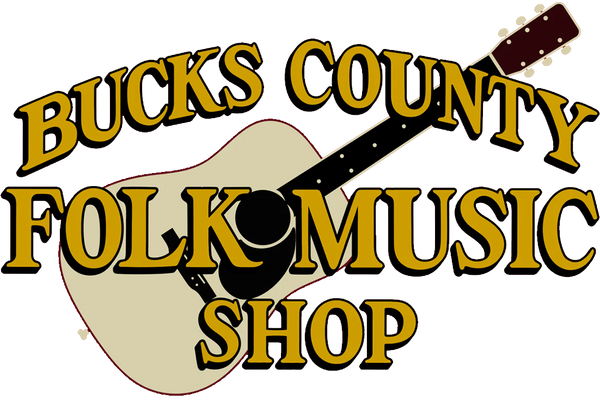
A Musical Lesson For Back To School
Share
Whether you have children in school or not, summer is usually the time for taking a break, relaxing, and being away from routines. But when Fall is upon us, many of us return to "our normally scheduled program", which can include music lessons. So let's talk about what you need to know to get you (or your kids, if you have them) and your instrument up and running NOW, before the mad rush.
YOU'RE GOING TO NEED AN INSTRUMENT AND IT NEEDS TO BE PROPERLY SET-UP:
There are pros and cons to both renting and buying an instrument, but regardless of whether you rent or buy - the instrument needs to be correctly set-up BEFORE you begin playing it.
There are many moving pieces and parts to every instrument and if those pieces and parts aren't positioned correctly or working correctly the instrument will be MUCH HARDER TO PLAY and won't sound like it should. It would be like trying to learn to ride a bike with a wobbly wheel and faulty brake when you don't even know the bike has problems.
Let's use the violin as an example: the string action may be too high or too low, the bridge may be in the wrong position, or not fitted properly to the top, or tilted too far, the sound post (inside the violin) may be in the wrong place or not in place at all, the pegs may be too loose or too tight, the fine tuner/s may not be working, the strings may need to be changed, the bow may be warped, or the bow hair might need to be replaced. This list is by no means exhaustive, but if even just one of the above mentioned items needs correcting, the instrument will be much harder to play and/or will not sound as it should.
One of the biggest mistakes people make is assuming the instrument (new or used) was already properly set-up before renting or buying it. Many times, that assumption is wrong!
So, what to do? Ask the people directly involved with selling or renting you the instrument what they did to set your instrument up correctly. Ask them to show you on your instrument examples of how it is properly set-up. If you aren't able to ask, then you should assume your instrument is not properly set-up and take it to a reputable repair shop that works on that type of instrument on a regular basis for an evaluation.
YOU'RE GOING TO NEED AN INSTRUMENT AND IT NEEDS TO BE THE RIGHT SIZE:
Almost every instrument comes in different sizes and it's important to know what size is the right size for you or your child. Again, think bicycles and picture a 7-year-old trying to ride an adult-sized bike. Well-meaning folks may take a guess on what size is the right size by reading something on the Internet or simply eyeing up the student without them actually holding the instrument. But many students end up playing the wrong size instrument (both too big and too small) and it makes things much harder for them.
So, what to do? The best way to know what size instrument to get is to have the student try out different sizes first-hand and have someone with you who knows how to determine proper fit. If that can't be done and a size was already chosen for the student, bring the student and the instrument in to a reputable store to see if it is truly the correct size.
YOU'RE GOING TO NEED AN INSTRUMENT AND IT SHOULDN'T BE "CHEAP":
There is inexpensive and then there is "cheap". There are many well-made, inexpensive instruments out there if you know what to look for. Unfortunately, there are also many poorly-made "cheap" instruments out there and many folks aren't able to tell the difference between the two.
People will often fall victim to buying a "cheap" instrument when they are just starting out. They don't know if they're going to stick with playing so, understandably, they don't want to spend much money. They might buy something from the Internet, at a large box store that doesn't specialize in instruments, at a garage sale, or are given an instrument that hasn't been played in years by a friend or relative. Sadly, these cheap instruments are the ones that are the most difficult to play - even by a more experienced player - and a new player will quickly become discouraged, thinking that they are the problem, when it is actually the instrument.
So, what to do? Do your research! Read up on the specific make/model/year instrument you're thinking of buying. Look for reviews from others who have owned that instrument and have played it for more than just a few weeks. If you aren't able to find out much information and/or the instrument is at a rock-bottom price, caveat emptor! Purchase from a reputable music store familiar with the instrument you wish to buy (in other words, don't buy a ukulele from a store that usually only sells keyboards and PA systems). And ask if and how the instrument was correctly set-up.
We here at Bucks County Folk Music Shop have been supplying new students (young and old) with affordable, student-quality violins, violas, cellos, guitars, ukuleles, and more for over 5 decades. We professionally set up each and every instrument here in our full-service repair facility and have the knowledge and experience to correctly fit younger students with the right size. And if you're not sure if the instrument you already have was set up correctly or may be the wrong size, we offer free evaluations.
Contact us today so we can help you find just the right instrument, or have us check over the instrument you already have to make sure it's just right.
